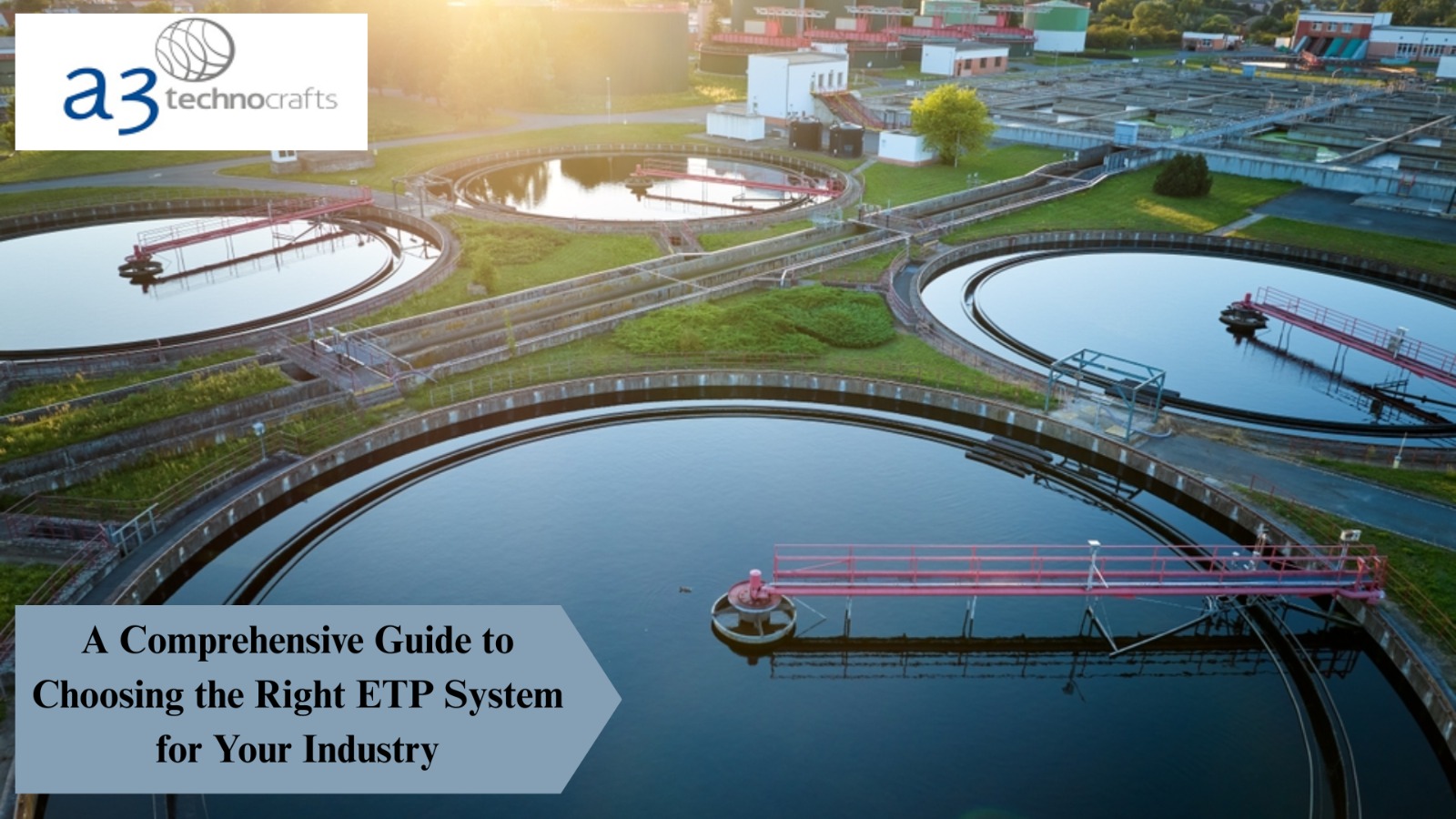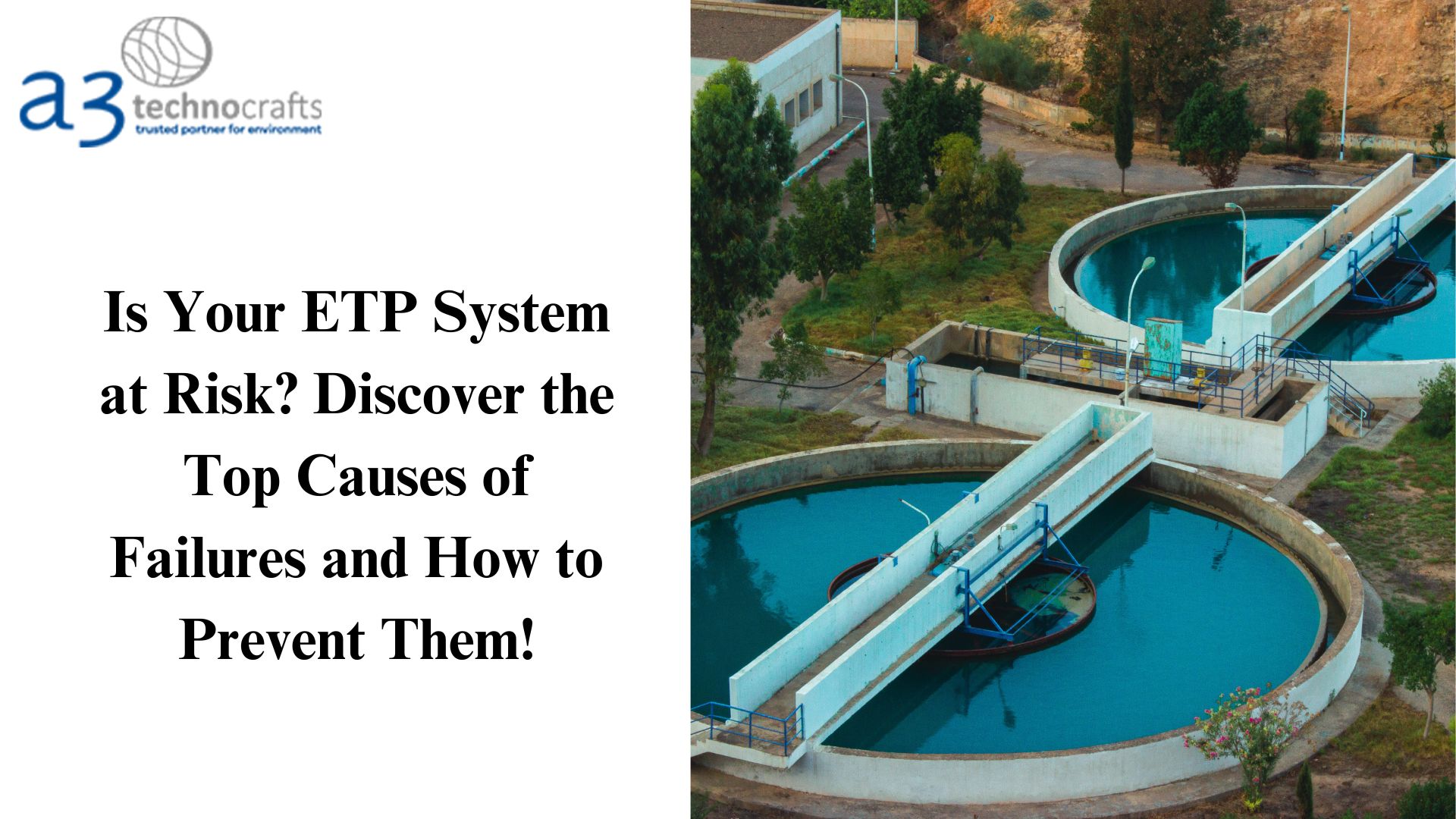In a world where environmental responsibility is non-negotiable, industries are turning to smarter wastewater treatment systems to stay compliant and sustainable. Choosing the right Effluent Treatment Plant (ETP) is not just about meeting pollution control norms—it’s about investing in long-term efficiency, safety, and corporate responsibility. For industries seeking quality, innovation, and reliability, A3 Technocrafts, one of the leading ETP Manufacturers in Delhi, offers solutions that align with both compliance and conscience.
What Is an ETP System and Why Do You Need It?
An Effluent Treatment Plant (ETP) treats wastewater generated by industrial activities. The treated water can either be discharged safely into the environment or reused for non-potable purposes. ETPs remove pollutants like oils, chemicals, heavy metals, and organic matter, ensuring that harmful substances do not reach water bodies.
For any industry—be it pharmaceuticals, textiles, food processing, or chemicals—ETPs are not optional. They are essential for meeting environmental laws, avoiding hefty penalties, and protecting the ecosystem.
Key Considerations When Choosing an ETP System
1. Type of Effluent Generated
Different industries produce different types of wastewater. Understanding your effluent profile—its composition, quantity, and flow rate—is the first step. A3 Technocrafts conducts a detailed analysis to recommend a system that perfectly suits your needs.
2. End Use of Treated Water
Is the goal to reuse the treated water in your processes or safely discharge it? Based on this, the ETP can be designed with advanced filtration, reverse osmosis, or disinfection stages. A3 Technocrafts offers customizable systems for both reuse and safe disposal.
3. Automation and Ease of Operation
Modern ETPs are equipped with automated controls for real-time monitoring, fault detection, and performance optimization. With A3 Technocrafts’ smart systems, industries can ensure minimal human intervention and greater accuracy in operations.
4. Compliance with Local Norms
All industries must comply with norms set by local pollution control boards. ETP Manufacturers in Delhi like A3 Technocrafts are well-versed with these regulations and ensure that every system is designed to meet mandatory discharge standards.
5. Space Constraints and Customization
Some industries operate in compact premises, which makes a modular or skid-mounted ETP an ideal choice. A3 Technocrafts specializes in designing space-saving, efficient units that do not compromise on performance.
6. Energy Efficiency
Energy consumption is a major factor in the operational cost of any ETP. Systems by A3 Technocrafts are built with high-efficiency motors, pumps, and aeration equipment, significantly lowering energy bills over time.
7. After-Sales Support and Maintenance
An ETP is a long-term asset. Choosing a manufacturer who offers training, AMC services, and quick spare part replacement is crucial. A3 Technocrafts provides full lifecycle support—from installation and commissioning to ongoing maintenance.
Why A3 Technocrafts Stands Out
As one of the trusted ETP Manufacturers in Delhi, A3 Technocrafts brings innovation, experience, and reliability to every project. With a focus on quality, the company delivers tailor-made solutions across multiple industries. Their in-house team of engineers ensures that every system is designed to meet client specifications and comply with the latest environmental standards.
Whether you’re setting up a new facility or upgrading an existing one, A3 Technocrafts offers a hassle-free experience from design to deployment. Their commitment to sustainable technology ensures that your business doesn’t just meet regulatory goals—but also contributes to a cleaner tomorrow.
Final Thoughts
An ETP is more than just a legal requirement—it’s a commitment to environmental stewardship. By choosing a system that aligns with your industry needs and long-term sustainability goals, you’re investing in both your brand and the planet. Partnering with experienced ETP Manufacturers in Delhi like A3 Technocrafts ensures that your wastewater treatment process is effective, efficient, and future-ready.


